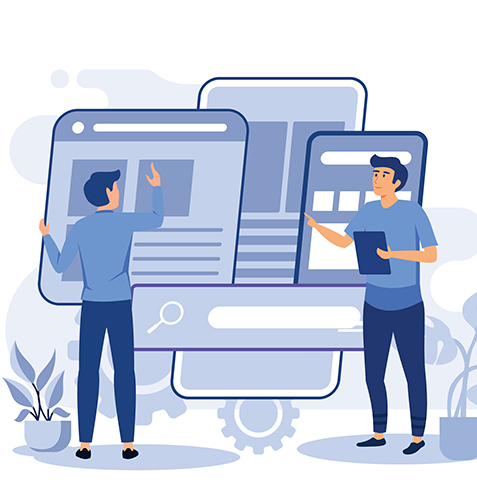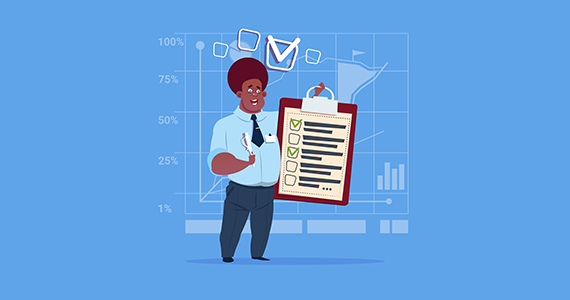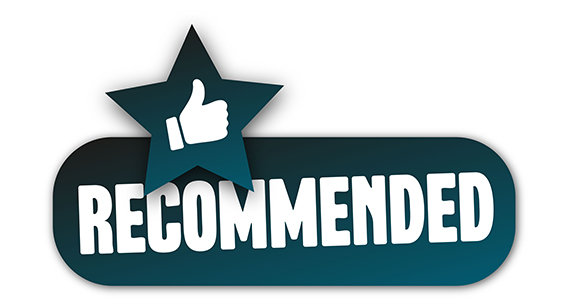Enhance the digital experiences you deliver to users. Through in-depth usability testing, you can refine and customize your UX to perfectly align with your users’ needs.

What is Usability Testing?
Usability testing is a structured method for assessing the effectiveness, efficiency, and user-friendliness of digital products like apps, software, or websites. It involves observing real users as they engage with the product, analyzing their experiences, difficulties, and feedback to identify opportunities for improvement.
Our Deliverables

Product Requirements Doc
A comprehensive outline that defines the required features, functionalities, and specifications essential for developing a new product or feature.

Comprehensive Roadmap
A detailed roadmap that outlines the strategic vision and timeline for the development and launch of products or projects.

Prioritization Frameworks
Organized techniques used to assess and prioritize tasks or projects according to their significance, urgency, and influence on overarching objectives.

Recommended Actions
Targeted recommendations or strategies suggested to accomplish desired outcomes or address specific challenges.
Understanding Usability Testing
Usability testing consists of several essential components:
- Real User Involvement: Unlike other testing methods that may use automated scripts or internal teams, usability testing engages actual users who reflect the target audience. These participants perform tasks and provide feedback as they would in real-life situations.
- Task-Oriented Methodology: Usability testing usually focuses on specific tasks or scenarios for users to complete. For example, on an e-commerce website, a task might involve searching for a particular product, adding it to the cart, and proceeding to checkout.
- Controlled Setting: Usability testing is generally conducted in a controlled environment, enabling researchers to observe how users interact with the product. This setup facilitates real-time feedback collection.
- Qualitative Insights: The data obtained from usability testing is primarily qualitative, encompassing observations, user comments, and feedback. Researchers focus on identifying issues such as navigation challenges, confusing interface elements, or performance problems.
- Iterative Approach: Usability testing is often an iterative process. Researchers take insights from one testing round, implement improvements, and then conduct another round to assess how these changes affect user experience.
Why Testing Matters
Usability testing is essential for several key reasons:
- Enhanced User Experience: Usability testing helps identify issues that may frustrate or confuse users. By resolving these problems, you can significantly enhance the overall user experience.
- Greater User Satisfaction: A more user-friendly product results in higher user satisfaction, increased engagement, and a greater likelihood of repeat use or purchases.
- Lower Support Costs: By identifying and addressing potential issues before launch, usability testing helps minimize customer support inquiries and complaints, ultimately reducing support expenses.
- Boosted Conversion Rates: Products and websites with improved usability typically experience higher conversion rates, whether the objective is to complete a purchase, subscribe to a mailing list, or perform another desired action.
- Competitive Edge: Products that prioritize usability gain a competitive advantage in the marketplace, making them more likely to stand out against rivals.
The Role of Usability Testing Services
Professional usability testing services are vital for enhancing user experience. Here’s how they contribute:
- Specialized Knowledge: They offer expertise in research methodologies, test design, and data analysis, ensuring thorough testing and actionable insights.
- Impartial Assessment: Professional services provide an unbiased evaluation of your product, free from internal biases or preconceived notions.
- Focused Participant Recruitment: They help recruit and select participants who closely resemble your target audience, leading to more accurate and relevant results.
- Tailored Testing Strategies: These services develop customized testing plans that align with your product’s specific goals and challenges.
- Comprehensive Analysis: They deliver in-depth analysis of test outcomes, identifying usability issues and recommending practical solutions for enhancements.
- Continuous Feedback Loop: Professional usability testing promotes an iterative improvement process, enabling ongoing enhancements to your product based on user feedback.
Choosing the Right Usability Testing Services
Choosing the right usability testing services is essential for achieving success. Keep the following factors in mind when making your selection:
- Proven Experience: Seek services with a solid track record and substantial experience in usability testing across different industries.
- Testing Methodologies: Ask about their testing methodologies, including the various types of usability tests they perform (e.g., moderated, unmoderated, remote), to ensure they align with your specific needs.
- Quality of Reporting: Evaluate their reporting capabilities and the clarity of the insights they provide, as this is crucial for making informed, actionable decisions.
- Tailored Solutions: Opt for services that provide customized usability testing plans specifically designed for your industry and product.
- Actionable Recommendations: Look for services that not only identify usability issues but also offer practical recommendations and solutions for enhancement.
In conclusion, usability testing is essential for enhancing the user experience of digital products. Professional usability testing services offer specialized knowledge, impartial assessments, and actionable insights to help identify and resolve usability issues. This ultimately results in more satisfied users, greater engagement, and a competitive advantage in the digital landscape.
The true power of CapX Corporation lies in our people: a highly skilled team of certified IT professionals ready to steer your IT transformation. Our 92% customer-retention rate reflects our ability to equip businesses with the essential tools to stay competitive, secure, and forward-thinking.
